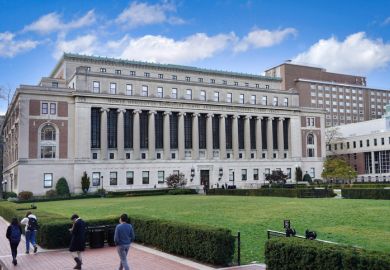Independence will give Scottish governments control over financial levers that can be used to further support world-class innovation
One of Scotland’s greatest strengths is its world-renowned excellence in higher education and research. It is these strengths, among others, that give me great confidence that Scotland is not only able to be an independent country but would thrive as one.
Last week, the Scottish government published Higher Education Research in an Independent Scotland, a paper that reaffirms that a strong research base is at the heart of this government’s ambitions.
Scotland’s universities consistently punch above their weight. Five of our institutions are in the top 200 of the Times Higher Education World University Rankings, more than any other country per head of population. Our universities excel in research citations and, in 2012, Scotland accounted for more than a quarter of the UK’s new spinoff companies.
I’m proud of these achievements and accolades and I believe independence will allow us to build on these successes and make further progress by being able to make decisions in Scotland that are in the best interests of Scotland.
Our universities, too, know that they can reach new heights, as independence gives future Scottish governments control over financial levers that can be used to further support world-class innovation and research.
Good research is underpinned by collaboration both domestically and across the world and is not constrained by borders. The Scottish government is committed to remaining part of a common research area with the rest of the UK. This is in the interests of both Scotland and the rest of the UK. And this is not just the Scottish government’s view but the preferred outcome across the sector.
In an independent Scotland, we would maintain existing collaborations that work well. Independence would also allow us to use the advantages of being a small and agile European country in developing new collaborations by extending our global reach.
Scotland currently contributes financially to the research councils through our share of UK tax receipts. With independence, our contribution would come directly from our own government budget rather than indirectly via taxation. We also have the capacity to maintain the current funding from the research councils and have already shown our commitment to research through substantial increases in investment since 2007.
I am committed to maintaining that investment to ensure that our research remains not just internationally competitive, but world leading.
Promoting innovation isn’t only about investment; it is also about respecting researchers’ autonomy. I am proud that Scotland’s higher education sector is already one of the most autonomous in Europe. An independent Scotland would continue to support the Haldane principle, which recognises that researchers – not politicians – are best placed to decide what research projects are funded. Indeed, this will be a central principle in our support for research in an independent Scotland.
Despite all of these successes, we remain extremely concerned about the damaging effect that Westminster’s immigration policies are having on our higher education sector. The number of students coming to Scotland from India almost halved between 2010-11 and 2012-13, while the number coming from Pakistan has decreased by 39 per cent. The changes to student visas are undoubtedly hindering universities’ ability to attract and retain talent.
I want to promote our higher education sector on a global stage and attract international talent. To do this effectively we need to remove these detrimental restrictions on immigration imposed by the UK government and this can be done only through independence.
For these reasons and more, I firmly believe the full powers and control of our own resources that we would have in an independent Scotland would mean that we were better placed to support continued growth in our universities and their research, delivering real benefits for universities, our nation and our economic future.
Register to continue
Why register?
- Registration is free and only takes a moment
- Once registered, you can read 3 articles a month
- Sign up for our newsletter
Subscribe
Or subscribe for unlimited access to:
- Unlimited access to news, views, insights & reviews
- Digital editions
- Digital access to THE’s university and college rankings analysis
Already registered or a current subscriber? Login





